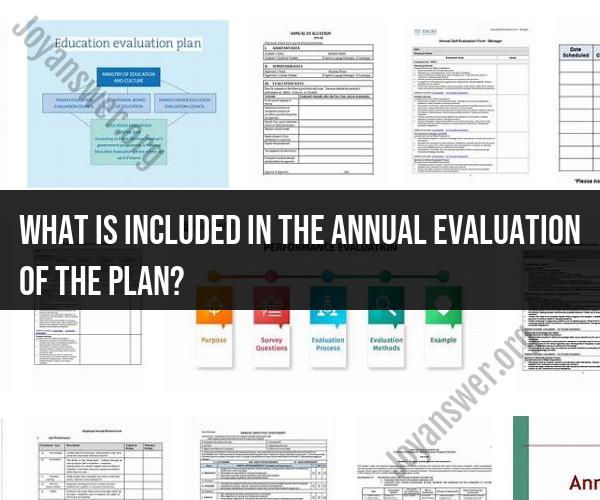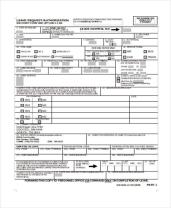What is included in the annual evaluation of the plan?
An annual evaluation of a plan is a crucial process that assesses the effectiveness, progress, and outcomes of a plan over the course of a year. This evaluation ensures that the plan remains on track, identifies areas of improvement, and provides valuable insights for future decision-making. Let's delve into the components and importance of conducting an annual plan evaluation.
Introduction
Whether it's a business strategy, educational curriculum, or personal development plan, regular evaluations are essential to gauge the plan's success and make informed adjustments. An annual evaluation offers a comprehensive overview of the plan's performance and helps stakeholders stay aligned with their goals.
Components of an Annual Plan Evaluation
An annual plan evaluation typically comprises the following key components:
1. Goal Assessment:
Review the original goals and objectives set at the beginning of the year. Determine the extent to which these goals were achieved and whether any adjustments are needed.
2. Progress Analysis:
Assess the progress made toward achieving the goals. Compare actual results with the anticipated milestones and identify any gaps or discrepancies.
3. Data Collection:
Collect relevant data, metrics, and performance indicators to support the evaluation. This may include quantitative data such as sales figures, student performance, or project completion rates.
4. Stakeholder Feedback:
Solicit feedback from stakeholders involved in the plan, such as team members, clients, customers, or students. Their insights provide a well-rounded perspective on the plan's impact.
5. SWOT Analysis:
Conduct a SWOT (Strengths, Weaknesses, Opportunities, Threats) analysis to identify internal strengths and weaknesses, as well as external opportunities and threats that may affect the plan's success.
Importance of Annual Plan Evaluation
The annual evaluation of a plan holds significant importance:
1. Performance Insights:
Evaluation offers insights into the plan's performance, highlighting what worked well and areas that need improvement. This information informs future strategies.
2. Accountability:
An evaluation holds stakeholders accountable for their roles in the plan's execution. It ensures that everyone is aligned and committed to the plan's success.
3. Continuous Improvement:
Identifying areas for improvement allows for course correction and refinement of the plan. This ensures that the plan remains adaptable to changing circumstances.
4. Informed Decision-Making:
Annual evaluations provide data-driven insights that inform decision-making for the upcoming year. Organizations can allocate resources more effectively based on evaluation results.
5. Goal Alignment:
Evaluations help ensure that the plan's goals are aligned with the organization's overarching mission and vision, maintaining strategic consistency.
Conclusion
An annual evaluation of a plan is a vital process that fosters growth, effectiveness, and strategic alignment. By assessing goals, progress, and stakeholder feedback, organizations can make informed decisions and continuously improve their plans for optimal outcomes.













